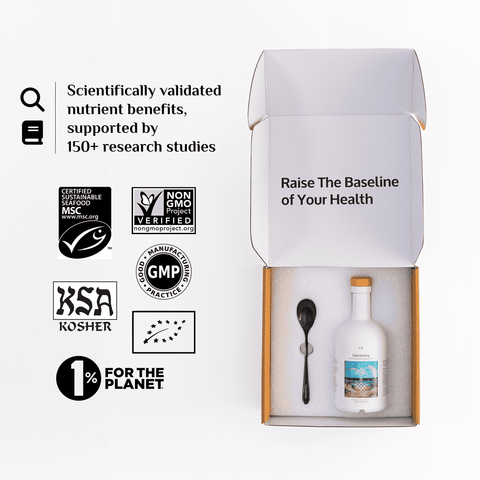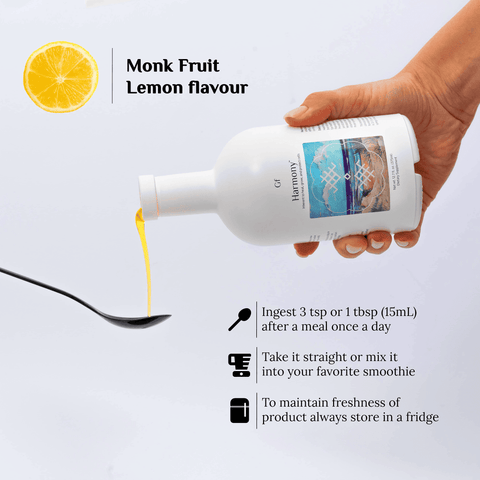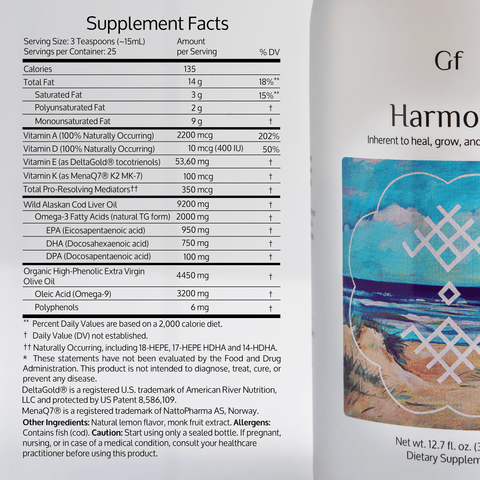Omega-3 fatty acids are essential for optimal health, but not all sources of omega-3 are created equal. Two of the most popular sources are fish oil and algae-based omega-3, each with unique advantages and disadvantages. Understanding the pros and cons of each can help you choose the best option for your health goals and lifestyle.
Why Omega-3s Matter
Omega-3 fatty acids, particularly EPA (eicosapentaenoic acid) and DHA (docosahexaenoic acid), are crucial for brain function, heart health, and reducing inflammation. While EPA and DHA are naturally found in fish and marine algae, they differ in their source, sustainability, and bioavailability.
Fish Oil: The Traditional Source
Fish oil is derived from the tissues of fatty fish like salmon, mackerel, anchovies and cod. It has long been the go-to source for omega-3 supplements.
Pros of Fish Oil
- Rich in EPA and DHA: Fish oil is naturally high in these two bioavailable forms of omega-3, making it effective for heart, brain, and joint health.
- Widely Available: Fish oil supplements are easily accessible and come in various forms, such as capsules, liquids, and gummies.
- Cost-Effective: Fish oil is often more affordable than algae-based alternatives.
Cons of Fish Oil
- Sustainability Concerns: Overfishing and marine ecosystem damage raise ethical and environmental issues.
- Potential Contaminants: Depending on the source, fish oil can contain trace amounts of mercury and other heavy metals, though high-quality brands undergo purification.
- Taste and Digestive Issues: Some people experience a fishy aftertaste or burps after taking fish oil supplements.
 Algae-Based Omega-3: A Plant-Based Option
Algae-Based Omega-3: A Plant-Based Option
Algae-based omega-3 is derived from marine algae, the primary source of EPA and DHA in the marine food chain. It’s gaining popularity, especially among vegetarians and vegans.
Pros of Algae-Based Omega-3
- Sustainable and Eco-Friendly: Algae farming has a lower environmental impact than fishing, making it a more sustainable option (source).
- Free of Contaminants: Algae-based supplements are free from heavy metals and other pollutants found in fish oil.
- Vegan-Friendly: Suitable for those following plant-based diets or avoiding animal products.
- Purity and Consistency: Algae oil is produced in controlled environments, ensuring consistent quality and nutrient composition.
Cons of Algae-Based Omega-3
- Lower EPA Levels: Most algae-based omega-3 supplements focus on DHA and may have limited EPA content, which is essential for reducing inflammation.
- Higher Cost: Algae-based supplements are typically more expensive than fish oil due to production methods.
- Limited Availability: Algae-based options are less widely available compared to fish oil.
 Which One Is Right for You?
Which One Is Right for You?
Fish Oil Might Be Better If You:
- Prioritize affordability and availability.
- Want high EPA and DHA content for heart and joint health.
- Are comfortable with marine-based products.
Algae-Based Omega-3 Might Be Better If You:
- Follow a vegetarian or vegan diet.
- Are concerned about sustainability and the environment.
- Want a supplement free from heavy metals and contaminants.
Making the Switch: What to Look For
- Quality Certification: Look for third-party testing labels such as NSF or IFOS (International Fish Oil Standards) to ensure purity and potency.
- EPA and DHA Content: Choose a supplement with at least 500–1,000 mg of combined EPA and DHA per serving.
- Freshness: Fish oil should smell neutral, not fishy, indicating freshness and proper storage.
Final Thoughts
Whether you choose fish oil or algae-based omega-3, the key is to ensure you’re getting enough EPA and DHA to support your health. Both options offer distinct benefits, and your choice should align with your dietary preferences, ethical considerations, and health goals.









